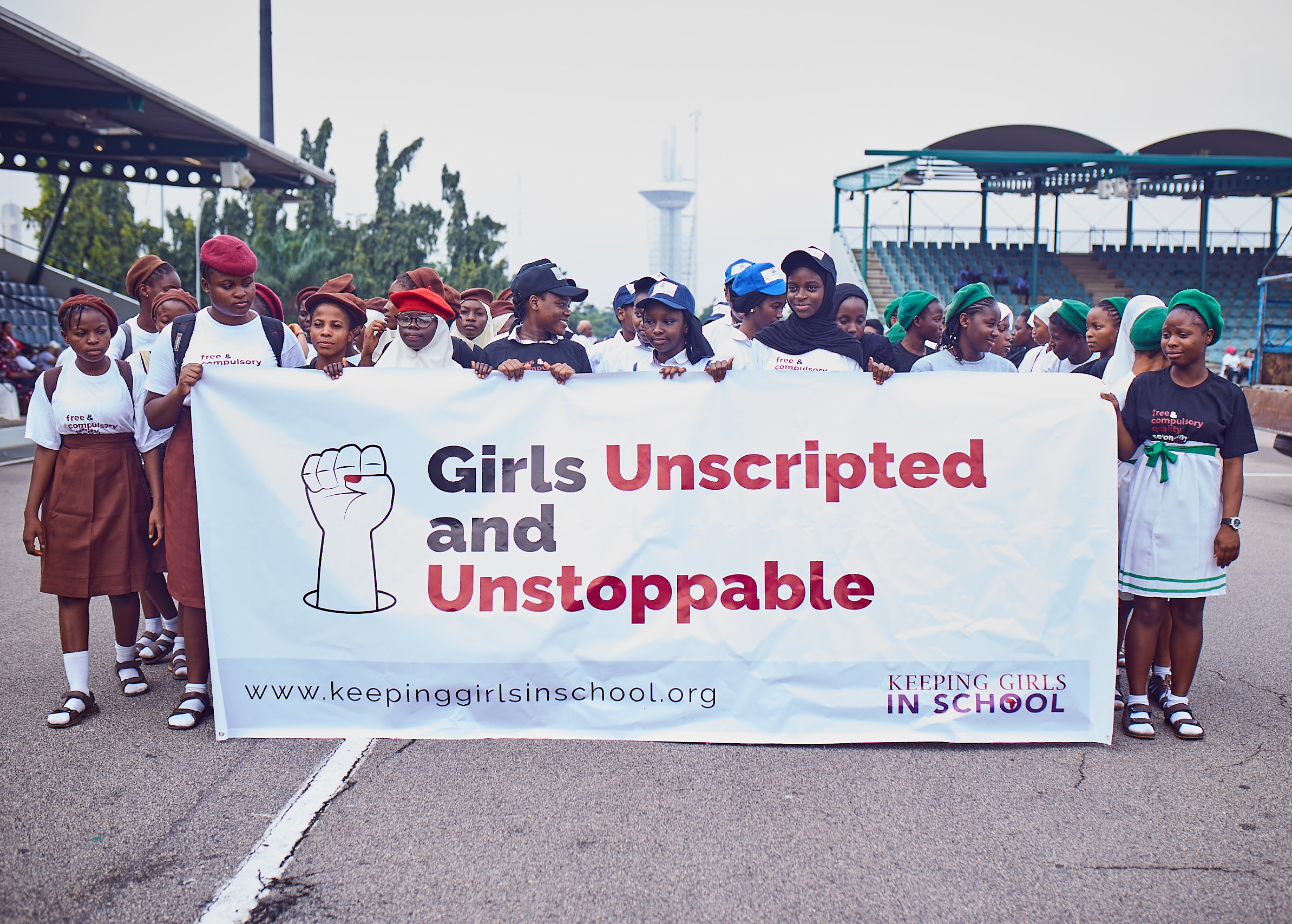Free and Compulsory Quality Secondary Education for all Girls
Since 2011, October 11th every year has been designated as the International Day of the Girl Child. It is a day set aside by the United Nations for promoting the rights of girls and addressing the unique challenges they face. It’s a day when diverse groups come together under the same goal to highlight, discuss and act to advance rights and opportunities for girls globally. The day promotes girls’ human rights, highlights gender inequalities that remain between girls and boys and addresses the various forms of discrimination and abuse suffered by girls around the world. From 2012, various themes have been developed to guide the celebration. The themes support the engagement of education sector partners working with girls to amplify their voices and stand up for their rights.
This year, under the themes “Girl Force: Unscripted and unstoppable” and “Empowering Girls for a brighter tomorrow”, UBEC, in collaboration with Girl Child Concerns (GCC), UNICEF and Sultan Foundation for Development organised a One Million Girls‘ March as part of the activities for this year’s International Day of the Girl Child celebration. The march is a call to action on “Free and Compulsory Quality Secondary Education for all Girls including livelihood skills in Secondary Education as well as 12 years uninterrupted schooling for girls”. The march took place across several states in Nigeria, Africa and the world at large.
In total, eleven (11) states participated in the march across the country, which included Bauchi, Katsina, Kano, Kaduna, Kebbi, Sokoto, Adamawa, Borno, Gombe, Niger States, and FCT Abuja.
The march was led by the Honourable Minister of Women Affairs in FCT, while wives of state governors, commissioners of women affairs and other state commissioners led at the state levels. The Minister of FCT received the girls at Eagle square Abuja, while State Governors, Deputy Governors, SSGs, Chiefs of Staff and Commissioners of Education received the girls in the various states. The girls who marched to the Governors or their representatives presented their demands for Free and Compulsory Quality Secondary Education for all Girls.
Across the states and FCT, women groups which included Federation of Muslim Women Associations in Nigeria (FOMWAN), Catholic Women Organization (CWO), Women’s Wing of Christian Associations of Nigeria (WOWICAN), National Council for Women Societies (NCWS), International Federation of Women Lawyers (FIDA), Women in Da’awah (WID), and Mothers’ Association lent their support by marching alongside the girls. Youth groups and NYSC were not left behind.
The different asks presented by the girls in the states included but not limited to:
- Improving transition to and completion of secondary school;
- Prohibiting hawking by school-age girls during school hours;
- Providing Water, Sanitation and Hygiene (WASH) Facilities in schools;
- Increasing the number of female teachers in schools;
- Including livelihood skills in secondary schools;
- Providing free education in all ramifications and devoid of any payment whatsoever;
- Penalising and sanctioning parents/guardians that withdraw or refuse to send their child(ren)/ward(s) to school.
- Providing quality education through training of teachers, equipping schools with the right infrastructure
- Providing a safe and conducive learning environment for girls.
- Strengthening of career guidance and counselling units in schools.
The total number of girls that participated in the march is approximated at 13,000 nationwide.

